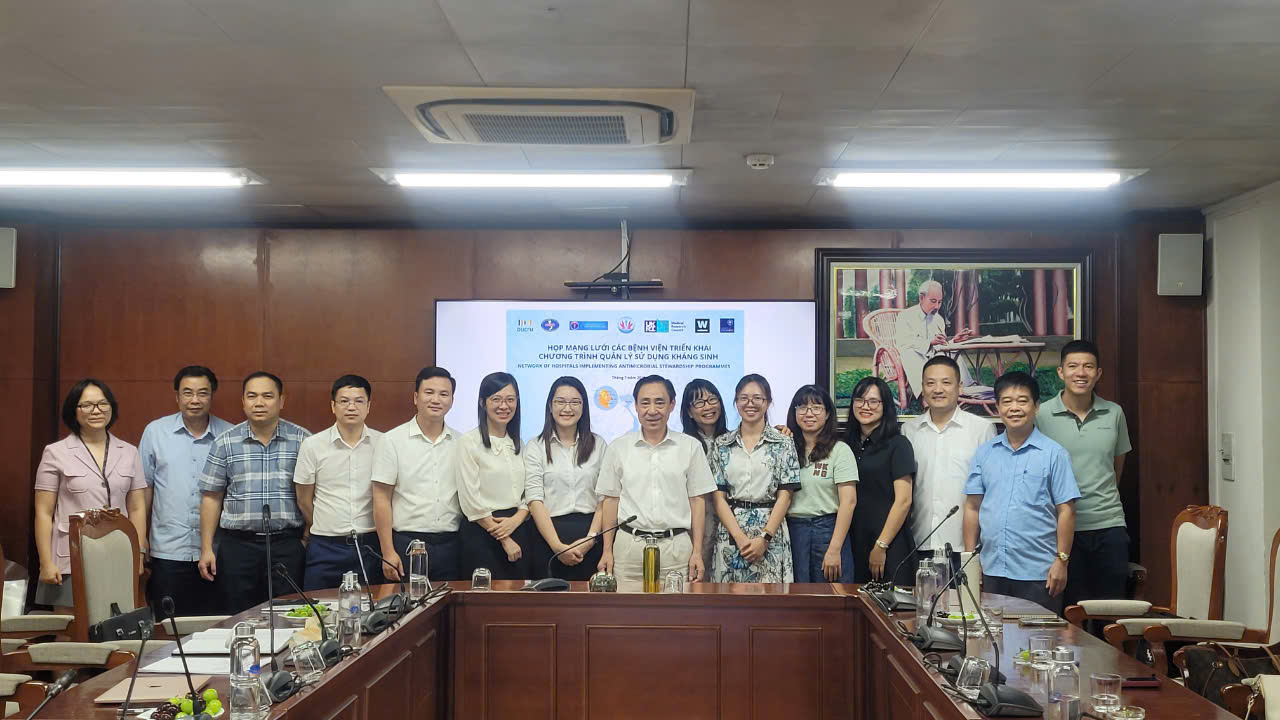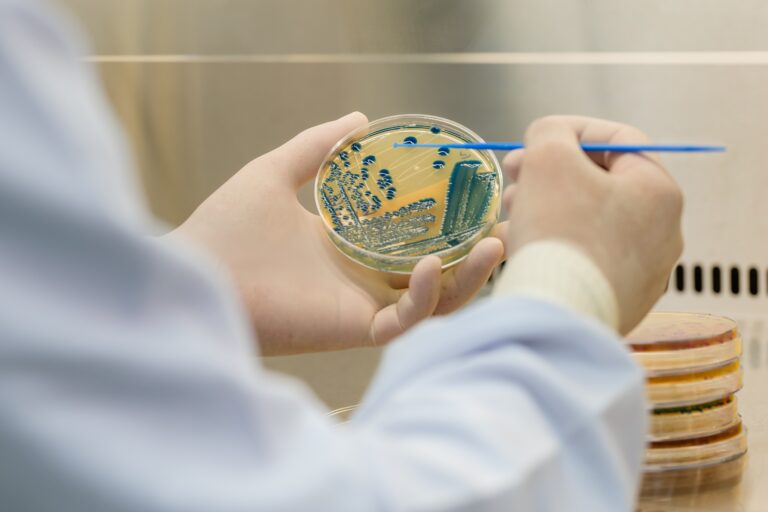From February to July 2025, the OUCRU research team with the coordination from two Provincial Health Departments and National Hospital for Tropical Diseases (NHTD) conducted baseline survey at 12 network hospitals, including six hospitals in Dong Thap Province (Feb – Apr 2025) and six hospitals in Phu Tho Province (Apr – Jul 2025). The collected data comprised:
Primary data:
- Quantitative data: Questionnaire was used for staff survey to assess their knowledge, attitudes, and practices regarding AMS, as well as case record form for patient survey to collect data on antibiotic use history and clinical outcomes during hospitalization. Environmental, wastewater, and rectal swabs samples were collected from participating sites and transported to the Provincial General Hospitals for storage and laboratory analysis.
- Qualitative data: In-depth interviews and focus group discussions were conducted with leaders and healthcare staff to explore current antibiotic use practices and perceptions of AMS implementation.
- Secondary data: Extracted from the Hospital Information System (HIS), including information on antibiotic use and microbiological results of inpatients.
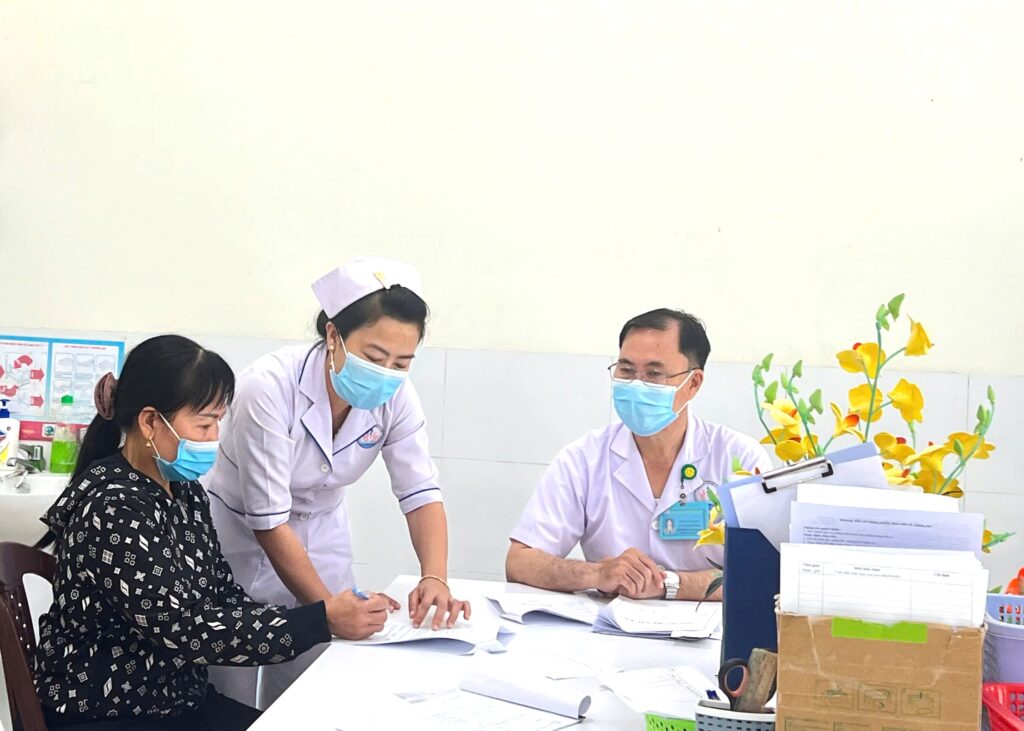
Preliminary Findings Shared with Provincial Health Departments
Following data processing and preliminary analysis, OUCRU collaborated with the two Provincial Health Departments and NHTD to present initial findings at two stakeholder meetings held on Jul 16, 2025 in Phu Tho and July 30, 2025 in Dong Thap. These meetings were attended by representatives from the Provincial Health Departments and all participating hospitals.
The presentations highlighted the current status of antibiotic use at each site and provided initial conclusions and recommendations. Notably, using HIS data, the research team developed individual reports on antibiotic use for each clinical doctor, covering the period from 2020 to 2024. This is an important behaviour change strategy to promote appropriate prescribing practices locally. The delegates engaged in discussions on the implementation plan for the AMS program at each site. The Department of Health provided strategic directions, expressing expectations that healthcare facilities would improve antibiotic use during the upcoming intervention year and beyond.
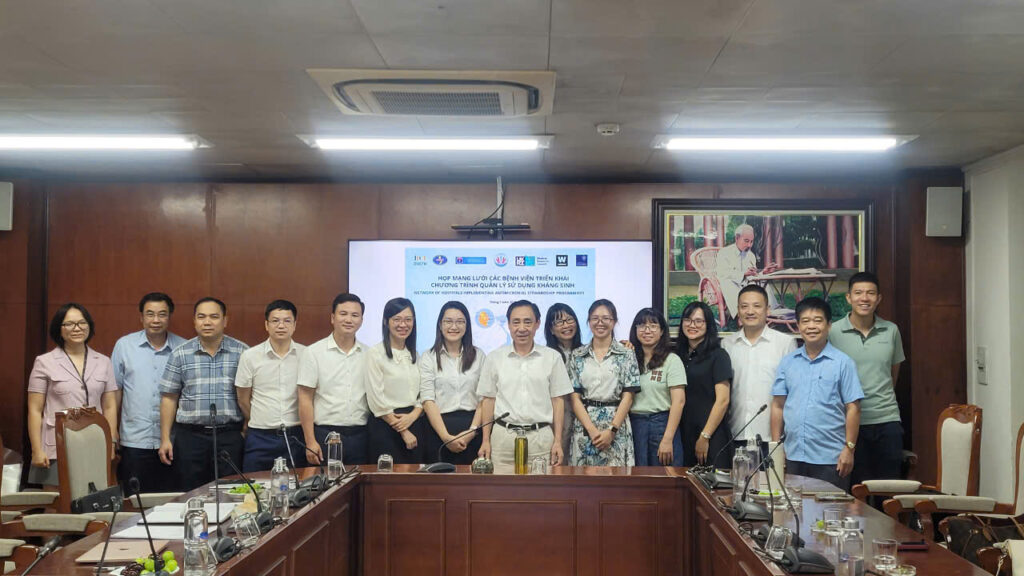
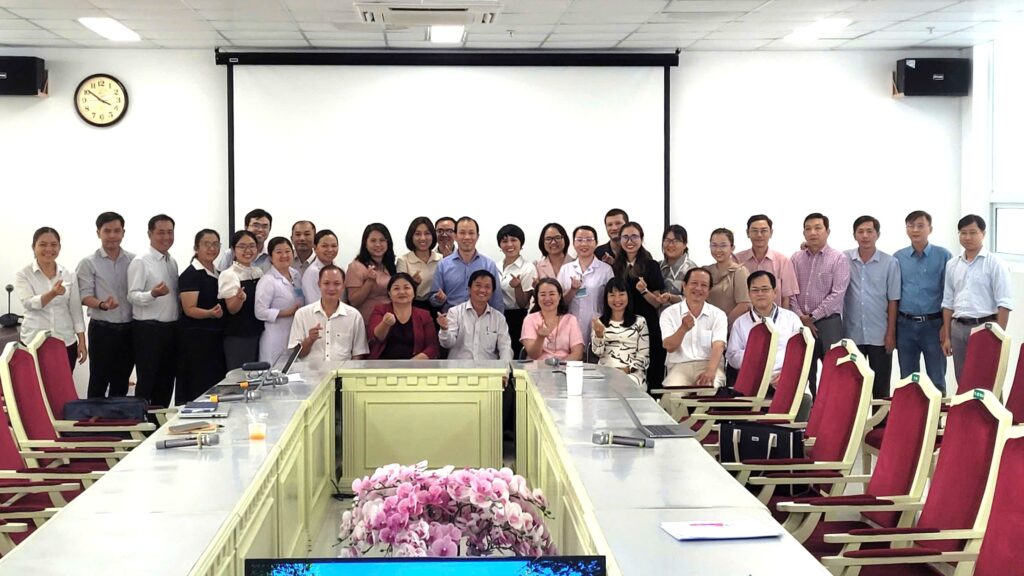
Internal Hospital Meetings
Following the provincial-level meetings, from July 31 to August 06, six network hospitals in Dong Thap successfully organized internal meetings to further discuss AMS implementation. These meetings involved hospital leadership, heads of clinical departments, and clinical doctors who will be directly involved in the AMS programme.
During these sessions, hospital representatives actively contributed ideas for the upcoming implementation phase. OUCRU and hospitals’ researchers discussed and identified improvement actions for appropriate antibiotic prescribing practices based on the reports on antibiotic use during these meetings and througout the continuous technical support and capacity building process of the project.
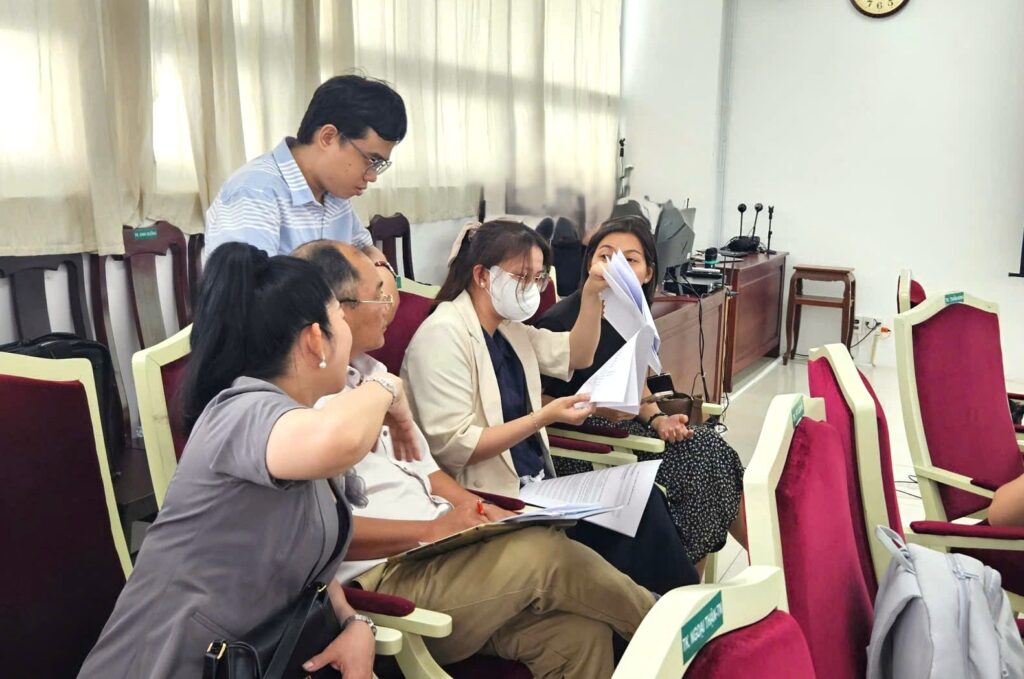
Next Steps
In the coming months, OUCRU will continue to support network hospitals in implementing AMS activities, including:
- Updating and developing individual reports on antibiotic use for clinical doctors.
- Conducting Audit and Feedback (AF) activities on antibiotic prescribing, with close collaboration between the Department of Pharmacy and clinical departments.
- Applying Power BI to analyze and visualize antibiotic use data, supporting effective monitoring, surveillance, and decision-making at both departmental and hospital levels.
- Supporting clinical doctors in optimizing antibiotic prescribing with at least 60% of antimicrobial consumption to the Access group (according to the goals of the WHO AWaRe classification)
- Prioritizing AF activities and updating clinical doctors guidelines for antibiotic use
- Developing and implementing a cumulative microbiology report to monitor antimicrobial resistance trends and support empirical therapy.
- Enhancing appropriate diagnostic testing: supporting clinical departments and laboratories in improving sample collection, interpreting microbiology results, and strengthening the collaboration between clinical practice and laboratory testing to improve treatment quality and resistance prevention.
- Reviewing and updating treatment guidelines: conducting regular reviews, updates, or development of treatment protocols, surgical prophylaxis guidelines, and antibiotic use guidelines tailored to local microbiology data and context.



